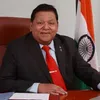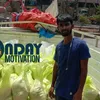Swades Foundation Founder Ronnie Screwvala says more than Rs 15 Cr has been raised for emergency COVID-19 relief
Speaking to Social Story, Ronnie Screwvala talks about how rural communities need urgent help with access to medical care and sustainable livelihoods.
A global crisis often puts the spotlight on the inequalities that exist in our societies. The COVID-19 pandemic has been no different, and the chasm that divides the rich and poor and urban and rural India has never been more obvious. From access to medical care to the very basics for food and water, rural India, especially forest-dwelling adivasi tribes, have been neglected.
According to the official 2011 Census, there are some 104.3 million adivasis in India comprising 8.6 percent of the population. Unofficially, that number is believed to be much higher.
With successive lockdowns and restricted access to markets, their plight has only worsened. Several private and non-governmental organisations (NGOs) have stepped up to help these underserved communities. Among them is the Swades Foundation, founded by Zarina and Ronnie Screwvala, which works in the area of rural empowerment.
Speaking to Social Story, Ronnie Screwvala shared some of the work that the foundation has been doing during the pandemic to support rural communities and the urban poor.
“When COVID-19 stuck last year and the nation went into lockdown, we knew our adivasi families, who were primarily dependent on daily wages with a hand-to-mouth existence and no savings, would struggle badly. They were indeed impacted the most with no work and no income,” he says.

Aadi is among those who returned to Raigad from the city during the lockdown. The Swades Foundation helped him start earn a living rearing goats
Adivasi and rural communities in India are primarily dependent on agriculture. In addition to shrinking landholdings, the COVID-19 outbreak further exacerbated their situation, as it became impossible to access both agricultural and non-agricultural livelihood options.
“We have always believed that villages need a holistic approach to make permanent positive change in the lives of rural people. Once you focus on water, sanitation, health, education, and livelihoods together, the impact is sustainable and villages can be fully empowered. Last summer, when there was a huge influx of migrants to Raigad, and again during Cyclone Nisarga in June 2020 as well, we saw that our water schemes were able to support them well.”
“Since moving back during the lockdown, many migrant labourers expressed the desire to stay as the sanitation and water facilities had improved. We have also been active through 1,100+ trained and empowered Village Development Committees (VDCs), all of which have bank accounts and are actively supporting communities,” says Ronnie.
While COVID-19 has been very detrimental to livelihoods in urban and rural India, he believes that this opens up opportunities to strengthen the overall approach and outlook for economic development. “While services/manufacturing will continue to support more people in our growing economy, there is a need to look at many segments of the rural population who may or may not have resources and capabilities to be a part of this,” he says.
Swades Foundation has been supporting efforts to create livelihoods that are farm-based, off-farm (Animal Husbandry) and skill development for employment/ self-employment.
“Even with livelihoods, we have a holistic focus that includes providing seeds/ saplings, livestock, tools, and the requisite training along with financial literacy and support them with market linkages. We continue to evolve our programmes and I am sure that will help us ensure our community continues to earn a decent living going forward as well,” he says.
The Digital Swades platform is also reaching out currently to 404 villages to provide services and guidance to women on health and to youth on education and livelihoods.
Serving the underserved and frontline workers
Swades Foundation is working with the Government of Maharashtra by assisting local authorities in three districts, including Raigad, Nashik, and Mumbai. The foundation is directly associated with the District Collector’s office in Raigad and Nashik and the BMC in Mumbai.
“The VDCs helped us identify these needy households and the district administration to share the list of such adivasi hamlets, which they wanted Swades to support. We immediately set up a task force and actioned provision of grocery and daily essential kits,” says Ronnie.
He says that the foundation has been actively working in both urban and rural Maharashtra since the outbreak last year.

The Swades Foundation distributed meals in several villages across Maharashtra during the lockdown
“During the first wave, we provided over 3.3 lakh meals to homeless and migrant workers in Mumbai and provided over 57,000 cooked meals to doctors and nurses across various hospitals in Mumbai. Now, during the second wave, we are providing cooked meals to the homeless and the migrant workers in Mumbai. We have targeted 30,000 meals for now, which will be scaled up depending on the need,” says Ronnie, adding that they work with an on-ground implementation partner who has five kitchens spread across Mumbai. He says the kitchens are FSSAI-compliant and in line with MCGM rules and regulations. COVID-19-related protocols are followed when the meals are cooked and distributed.
“All cooks are RT-PCR tested when they join and they stay on the premises and have no direct contact with outside people. They wear disposable masks and head caps and their temperature checks are done daily. The kitchens are cleaned four times a day. Volunteers for distribution maintain social distancing and are masked-up all the time,” he adds.
Ronnie says that the partners are primarily identified through referrals. “We do complete due diligence on their track records while ensuring alignment with us on 3Ps – Purpose, Principles, and Processes.
When the lockdown was declared last year, over 95,000 reverse migrants came home to the areas Swades Foundation works in. He feels the numbers were not as drastic this time.
“As compared to 2020, we did not see a similar influx in our geography, though many people who came to Raigad for Holi in March chose to stay back. However, this wave has definitely impacted the rural areas more. While we hardly witnessed any cases last year in villages, we found almost 1,000+ cases added every week during the peak of April and May this year,” he says.
Speaking about how the foundation provided relief support, he says the team worked at two levels. First, they collaborated with the district administration in Raigad and Nashik to understand and capture the needs for hospital infrastructure, especially for oxygen-related supplies in addition to basic medical needs, and created the “Swades COVID-19 Relief and Recovery Fund” to raise money.
The second area of focus was at the community-level in partnership with district administration to provide masks, create awareness, offer counselling to COVID-19 positive patients, and organise mobile vaccination drives in villages, especially for the elderly and people with disabilities.
Emergency medical support
Through the Swades COVID-19 Relief and Recovery Fund, the team raised funds and grants for 15 ventilators in one week. These were deployed in priority in rural hospitals across Nashik and Raigad as per the requirements of the district administration.
“We are now arranging for 15 fixed ventilators in Mumbai for the Jumbo facility at Bandra Kurla Complex as per the need raised by Brihanmumbai Municipal Corporation,” says Ronnie.
The team also worked to arrange transport for patients from rural areas in need of critical support to hospitals across Mumbai and Pune.
“As the second wave impacted rural areas, we found that there were many requests for immediate transfer of patients to the cities. This was because rural areas have limited support for critical care. We understood the challenges and needs of the district administration, and followed up with the Director of Health and Health Commissioner, Government of Maharashtra, to identify as to how we can respond better in such a situation,” says Ronnie. The team then connected with the operator of the 108 ambulance services in Maharashtra.

Medical staff at the Alibaug Civil Hospital with ventilators donated by Swades Foundation.
“Their data from the previous year helped us identify block-wise needs and we could decide deployment of the ambulances in remote and less-served areas in Nashik and Raigad districts. We will donate 11 ambulances to the Director of Health Services of the Government of Maharashtra, and these will be operated by Bharat Vikas Group, who manages the entire 108 services in Maharashtra. These ambulances are being deployed in Raigad and Nashik.”
To meet the shortfall in medicines and oxygen across the state, the foundation has been offering support at two levels. “On the demand side, we have tried to assess the needs, and on the supply side, we have been evaluating the suppliers,” says Ronnie.
For the demand assessment, the team connected with the collectors and health officials in districts where the infections were very high. “Besides our current working geography of Raigad and Nashik, we also reached out to Sangli, Kolhapur, Ahmednagar, Solapur, and Mumbai. We also coordinated with the Commissioner of Health, Government of Maharashtra, to coordinate and prevent any duplication.”
“On the other hand, our team evaluated the possible suppliers and we also reached out to our corporate partners for support. We have so far mobilised Rs 15 crore for providing medical equipment such as oxygen cylinders, oxygen concentrators, ventilators, portable ventilators, N 95 masks, multipara monitors, and ambulances.”
“We are signing an MoU with hospitals to ensure proper installation, use, and maintenance of the donated equipment. We are thankful to our donors for their support during the pandemic. The donors who have supported us in our work around COVID include Sony Pictures Network India, Bank of America, Deutsche Bank, HSBC, Trafigura Foundation, and Standard Chartered Bank,” says Ronnie.
Community initiatives
Swades Foundation has also been working on several initiatives, including vaccination awareness campaigns, encouraging rural communities to take the vaccine, and counselling support for COVID-19 patients. The foundation recently signed an MoU with the Department of Health and Family Welfare, Raigad, to ensure the vaccination of rural communities across seven blocks in Raigad district.
“Besides these initiatives, we also supported our employees with their COVID-19 vaccination and COVID care has been included in our employee mediclaim policy,” he says.
He says that the key challenge has been connecting with remote villages. “These villages are disconnected from the outside world and to get there and implement our initiatives has been challenging in many ways. The other challenge is with identifying good and reliable suppliers, and delays in supplies due to high demand.”
“We also need volunteers to work with our on-ground partner for the distribution of meals. We would also be happy to have volunteers raise funds for the needs that we are getting from many districts in Maharashtra,” he says.
Those interested in volunteering can email Swades Foundation at volunteer@swadesfoundation.org
Edited by Megha Reddy








